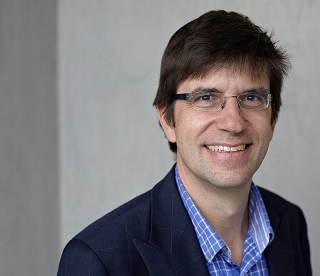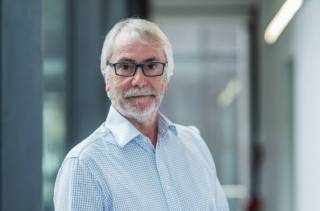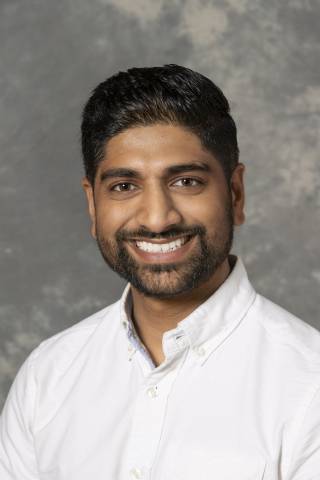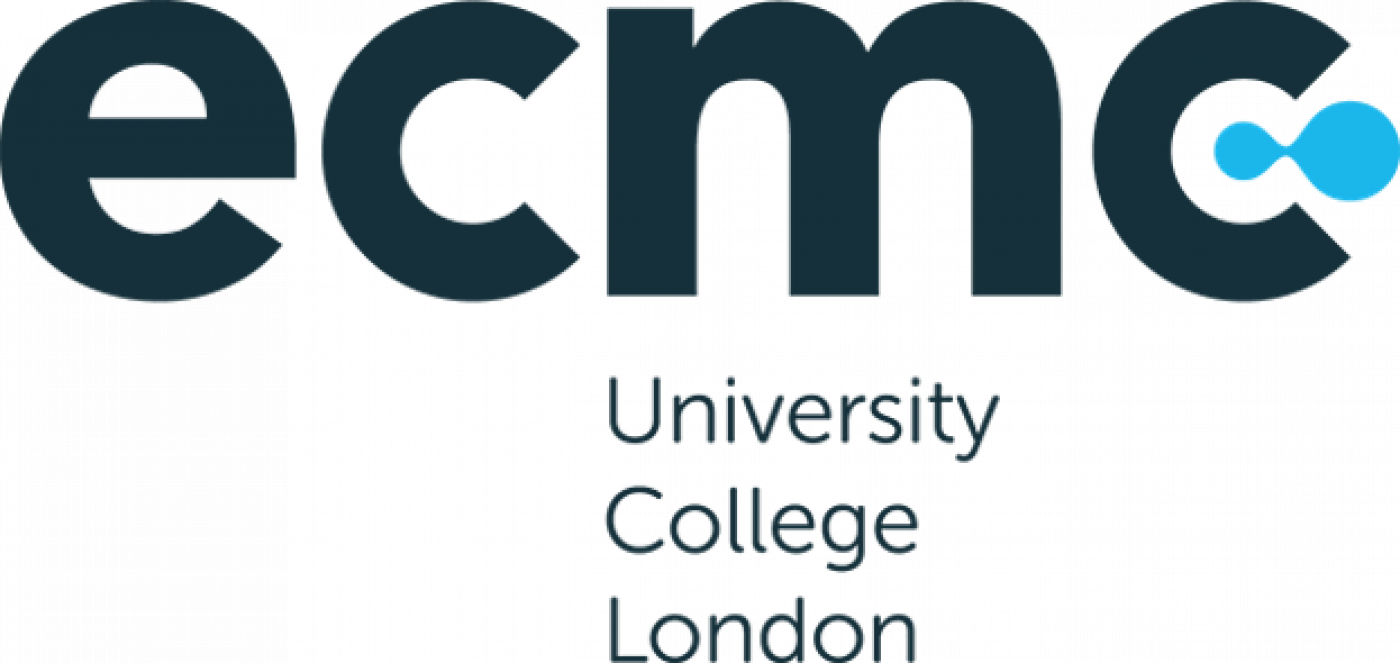The Experimental Cancer Medicine Centre (ECMC) Network is a unique UK-wide initiative jointly funded by Cancer Research UK and the Health Departments of England, Wales, Scotland and Northern Ireland.
UCL ECMC
Centre Clinical Lead: Dr Martin Forster
Centre Scientific Lead: Professor John Hartley
Research Manager and Centre Operations: Mr Dominic Patel
The UCL ECMC provides key infrastructure within the Cancer Institute (CI), as well as supporting the Clinical Research Facility (CRF) and Cancer Clinical Trials Unit (CCTU) at UCLH. We work with the GCLP Facility at UCL which works in accordance with current regulations for the purpose of clinical trial sample analysis. This ensures we have the multi-disciplinary professional expertise to translate our biological developments to the clinic. Below is an overview of the infrastructure we help to fund.
Update January 2023: We are pleased to announce that we have been successful in our funding bid for the renewal of the UCL ECMC. This means that we will be funded for a further five years from 2023 until 2028 and ensures we'll be able to progress with our vision and strategy as outlined below.
Vision and Strategy
Our vision for the ECMC at UCL is to facilitate and enhance the Cancer Institute's world-class strengths to develop novel cancer therapies. We want to ensure that the research within (and external to) the Institute is translating into real world benefits. Our ECMC will be focused on the following themes, which are aligned with the UCL Cancer Strategy that was developed alongside Cancer Research UK City of London Centre, RadNet City of London, and the UCLH Biomedical Research Centre:
- GCLP Facility and Biomarkers
- Optimising treatment effectiveness through understanding Cancer Evolution
- Immunotherapy, Cell Based Therapy and Gene Therapy
- Radiotherapy
- Early Phase Clinical Trials
We will do this by facilitating a scientific based approach to therapy, mixing it with clinical knowledge from our Healthcare Partners and Cancer Institute colleagues to produce the most effective therapies. To deliver our vision, we will take full advantage of our scientific environment and improved clinical infrastructure.
We work collaboratively with a number of clinical partners, including paediatric specialists at Great Ormond Street Hospital (GOSH), the Sarcoma team at the Royal National Orthopaedic Hospital in Stanmore, and the National Hospital for Neurology and Neurosurgery at Queen’s Square that specialise in Neuro-oncology.
We will design clinical trials that are more inclusive and diverse, ensuring that therapies are thoroughly tested and benefitting those that require it most. The patients and public will play an ever-increasing role in clinical trials. They, alongside a multitude of professionals, will form a comprehensive team which will oversee trials at multiple points along the process. This includes design, resource creation, patient engagement, and many more responsibilities. The UCLH CRF have a very informative section on their UCL website about Patient and Public involvement.
We aim to work cohesively with our partners within UCL (CRUK CoL, RadNet) to maximise patient and public outreach to better inform them of our current research and break down barriers between academia and the wider public.
UCL ECMC Supported Infrastructure
The structure of the UCL ECMC is outlined in the menus below. We provide support to various aspects of translational science thereby aiding bench to bedside progression.
- Centre Lead
Dr. Martin Forster
Dr. Martin Forster is an Associate Professor at UCL and consultant medical oncologist at University College Hospital. He is the UCL ECMC Clinical Lead and UCLH Clinical Lead for Cancer Research. He specialises in thoracic and head and neck cancers and has a particular interest in drug development and in using the increasing understanding of cancer biology to design studies that distinguish patient populations most likely to gain benefit from new drugs and new drug combinations.
He is a core member of the lung and head and neck cancer teams and runs a research-based practice, being principal investigator or chief investigator for over 80 early and late-phase clinical trials, from first-in-human to registration Phase III trials. These include targeted therapies in precision oncology trials, novel immunotherapies, and more recently solid cancer cell therapy studies.
He collaborates broadly with national and international groups involved in translational research and is joint lead for the clinical trials theme of the Cancer Research UK Lung Cancer Centre of Excellence and chairs the NIHR Head and Neck Research Group.
Professor John Hartley

- Centre Manager
Mr Dominic Patel
Dominic has been at UCL for almost 10 years now. Previously he worked as a Research scientist in the Research Department of Pathology before joining us in March 2022. His role involves closely working with the supported infrastructure, in particular the GCLP facility and the UCLH CRF, creating annual reports, keeping track of active clinical trials and working closely with the CRUK UCL CoL Centre Manger on PPI activities. He is also part of the ECMC Business Leads (CBL) Forum and leads on lab sustainability within the Cancer Institute.

- Infrastructure
GCLP Facility
- Theme lead – Prof John Hartley
- ECMC GCLP Facility
- Genetics and Cell Biology of Sarcoma
Pathology Translational Technology Platform
Quality Assurance - Melanie Fearon
- Melanie is an experienced QA professional who has several years of experience in the support, delivery and oversight of oncology clinical trials within the NHS.
Melanie’s role involves the further development, management and oversight of quality management systems of laboratories within the UCL Cancer Institute that participate in clinical trials, ensuring that clinical trial activities are conducted in accordance with the current clinical trial regulations and guidelines. A major component of her post is to support the UCL ECMC early phase clinical trial program and the UCL ECMC GCLP Facility.
Melanie acts as a point of contact providing advice, expertise, guidance and support to all laboratory groups involved in clinical trials on GCP, quality and regulatory aspects, and supports relevant quality related training needs. She also manages an internal audit program, conducts and reports internal audits and facilitates sponsor audits and regulatory authority inspections. Melanie maintains close links with the UCL Joint Research Office and CRUK and UCL Cancer Trials Centre.
- Melanie is an experienced QA professional who has several years of experience in the support, delivery and oversight of oncology clinical trials within the NHS.
- Theme lead – Dr Claire Roddie
- CAR-T Programme
- Theme lead – Prof Maria Hawkins
- Theme lead – Dr Rakesh Popat
- Theme co-lead – Dr Martin Forster
- Early Phase Cancer Trials
Patient and Public Involvement
We are keen to identify areas where we can involve patients more with our work, as such, if you are a cancer patient/survivor or have cared for someone with cancer and would like to be involved with our work then please do get in touch with Dominic Patel.
Another of our key objectives is to identify groups that may be under-represented within cancer clinical trials at UCLH. We are at the preliminary stages of our work with this and hope to use the information garnered from our audit to engage with any groups that have traditionally been less represented within clinical trials.
We presented some initial data on this at the Oncology Professional Care Conference. We aim to ensure we aren’t carrying out tokenistic gestures and hope to elicit real changes within the way we engage the local community.
Achievements
UCL CI and UCLH have had a number of world class successes over the past five years which the UCL ECMC has critically contributed towards. The drop-down menus below highlight several of these accomplishments.
- Biological Therapies Translated into Clinical Practice
- Successful First-in-Human study on CD19 CAR for refractory B-ALL led to a commercial registration study
- First-in-Human studies of bi-cistronic and co-transduced CD19/CD22 CARs
- CD19 CAR trials in primary CNS Lymphoma and EGFRvIII CAR trial in Glioma
- A GD2 CAR in Neuroblastoma
- Advanced Adoptive T-cell Therapies targeting Clonal Neo-Antigens into clinical trials
- Developed a first-in-class CD25 TReg depleting antibody in clinical trials
- New Therapeutic Approaches through Research on Clonal Trajectories and the Tumour Microenvironment
- Defined the importance of clonal neoantigen-driven T-cell targeting
- FDA Breakthrough Device Biomarker approved for detection of Minimal Residual Disease
- Targeting of tumour vasculature through understanding integrin biology
- Cellular therapy live cell imaging to track immunotherapies efficacy in vivo
- Development of immune modulators for TReg and Tc cell cross talk
- Innovation through Early Phase Clinical Trials
- Development of ADCT- 402 Antibody Drug Conjugate from UCL lab to FDA accelerated approval
- Leading delivery of a portfolio of CD3-bispecific therapy studies
- Expanding ATIMP Trials Service in Haematology and Oncology
- Two successful Clinical Research Facilities supporting broad portfolio of academic and commercial studies
- Delivering Leading Research Infrastructure and Programs
- World class CAR T-cell program with 11 trials open based on UCL Research
- Fully Accredited GCLP Facility incorporating a CRUK Centre for Drug Development Biomarker Hub
- Leading TRACERx cancer evolutionary and PEACE National Autopsy Programs
- Translational Site for practice changing STAMPEDE study in prostate cancer
 Close
Close



